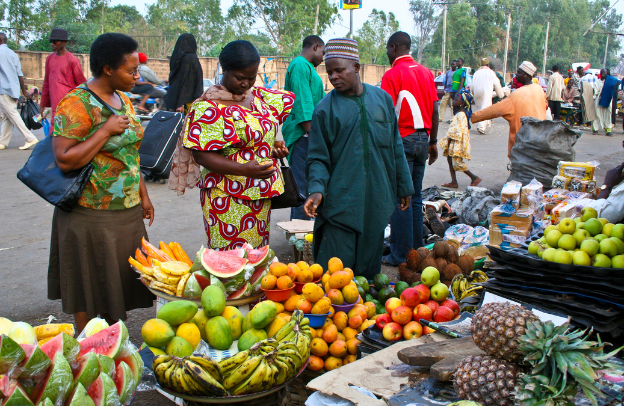The Challenges of Agriculture in My Beautiful Jos, Plateau State, Nigeria

Amaka Ifeduba PhD | Contributor on Agribusiness Topics
Agriculture in Jos, Plateau State, Nigeria, plays a crucial role in the local economy, but not without its share of challenges. From erratic weather patterns and inadequate infrastructure to limited access to markets, farmers face a series of hurdles that threaten their livelihoods. What’s behind these struggles, and how are farmers adapting to survive?
Want to learn more about storytelling? Start by downloading the first chapter of The Storytelling Mastery.
First, I sincerely thank all 2,599 of you who have taken the time to subscribe to my newsletter.
I will be very honest with you: what I have more than answers are questions and observations. I hope these letters foster a two-way correspondence where you share your thoughts, insights, and questions, and through deep exploration, we can find solutions together.
Today, I want to tell you a little bit about the town where I was born and raised: Jos, in Plateau State, Nigeria. Jos is a small city with a land mass of about 1,800 sq km and approximately one million people within a state of almost 31,000 sq km and a total population of 4.7 million.
The Beautiful Rocks in Jos Plateau
“Plateau” describes Jos’s elevated and picturesque terrain, characterized by rolling hills, valleys, and beautiful rocks. Jos is one of the coolest cities in Nigeria, known for its waterfalls, lakes, and rich biodiversity that enhance its natural beauty. The region’s vibrant cultural heritage, peaceful serenity, and outdoor adventure opportunities make Jos Plateau an enchanting destination.
See also Processing and Marketing of Selected Cassava Products in South-east Nigeria
One thing I always thought was most unique about Plateau State is the language diversity, with over 50 languages spoken in just one State.
Growing up in Jos, I observed sharp differences in Agricultural activities and food availability in the two major seasons:
- During the rainy season, food was abundant, and farmers were happy and
- During the dry season, food was scarce, and hunger was more prevalent.
This realization often saddened me and motivated me to pursue a PhD education abroad after finding that even with a Master’s degree, I did not have the solutions to these problems.
The Tomato Market in Jos
- Unfortunately, even though I now understand the problems better, I still do not have all the answers and continually strive to become more aware.
- I will end this letter by highlighting some of the major challenges of agriculture in my beautiful Jos Plateau and, by extension, Nigeria and even Africa at large:
- Inadequate human resources: most farmers lack the technical know-how for modern best practices.
- Misinformation and lack of proper communication.
- Limited technology and innovations.
- Disinterest of the younger generation in Agriculture.
- Unexpected changes in climate conditions affecting Agricultural yield and quality.
- Inadequate seed systems and market development.
- Economic instability and rigid regulations.
- Religious intolerance & crisis.
- Burning of the Jos main market in 2002 (Terminus market – was one of the biggest markets in West Africa).
- Insensitivity from the government.
The Jos Terminus Market before the ill-fated fire
Terminus Market after the fire (source Punch Newspaper)
I hope to get some feedback from you. In my next letter, we can begin to explore practical and actionable solutions to these problems.
Until then, ciao.
Want to learn more about storytelling? Start by downloading the first chapter of The Storytelling Mastery.




